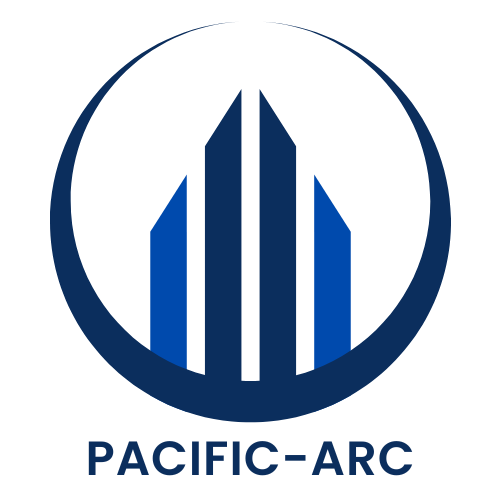Securing a down payment for a new home can feel like trying to find a unicorn in a haystack. With rising housing prices and the cost of living, many potential homeowners find themselves wondering if they’ll ever make it to the closing table. But fear not! There are plenty of creative and practical methods to help turn that dream into reality.
From tapping into savings to exploring assistance programs, he’s got options that won’t break the bank. Whether it’s negotiating with family or finding hidden treasures in your budget, the journey to homeownership can be both exciting and financially savvy. So grab a cup of coffee and get ready to uncover the best strategies to secure that down payment and finally claim your slice of the American dream.
Table of Contents
ToggleUnderstanding Down Payments
A down payment represents a percentage of a home’s purchase price that a buyer pays upfront. Typically, down payments range from 3% to 20% of the total cost. The size of the down payment influences monthly mortgage payments, interest rates, and overall affordability.
Homebuyers who contribute larger down payments often secure better loan terms. Such benefits include lower interest rates and avoiding private mortgage insurance (PMI). Buyers should evaluate their financial situation when deciding on a down payment amount.
Various factors dictate down payment requirements. Loan types, lender policies, and buyer eligibility all play a role. Conventional loans generally expect 20% down, but government-backed loans like FHA and VA offer options with lower down payment thresholds.
When considering down payments, savings strategies deliver significant advantages. Building a dedicated savings account for homeownership can simplify the process. Using automation to transfer funds directly can expedite accumulating the required amount.
Assistance programs also provide valuable resources for potential buyers. Programs vary by location and can include grants, loans, or tax credits. Many state and local governments actively offer these incentives to support homebuyers.
Creating a detailed budget helps identify potential savings areas. Analyzing monthly expenses allows individuals to allocate funds effectively. Cutting discretionary spending enables increased savings, directly supporting down payment goals.
Networking with family can also yield positive results. Many people have successfully turned to relatives for financial support. A loan or gift from family members may significantly enhance a homebuyer’s down payment capacity.
Savings Strategies

Dedicated savings strategies play a crucial role in securing a down payment for a new home. Employing effective methods can accelerate the path to homeownership.
Automated Savings Plans
Automated savings plans provide a streamlined approach to setting aside money for a down payment. Many banks offer features that allow individuals to schedule automatic transfers to a designated savings account. This method ensures consistent contributions without the need for manual intervention. By establishing a specific percentage of income for these transfers, buyers can minimize the temptation to divert funds elsewhere. According to financial experts, saving 20% to 30% of one’s income can significantly increase available funds over time.
Budgeting for Homeownership
Budgeting for homeownership involves creating a detailed financial plan to identify potential savings. It’s essential to track monthly expenses accurately, distinguishing between needs and wants. Examining discretionary spending often reveals opportunities to cut costs, enabling individuals to redirect funds toward their down payment savings. Setting a target savings amount based on the desired home price enables buyers to create realistic timelines. Prioritizing essential expenses while eliminating unnecessary purchases cultivates a disciplined approach to securing a down payment. Financial advisors recommend reviewing budgets regularly to adapt to changing circumstances and ensure savings progress remains on track.
Financial Assistance Programs
Financial assistance programs play a crucial role in helping potential homeowners secure down payments. Various options exist to ease the financial burden, making homeownership more attainable.
Government Grants and Loans
Government grants and loans offer significant support for first-time homebuyers. Programs like the Federal Housing Administration (FHA) and U.S. Department of Agriculture (USDA) provide low-interest loans with minimal down payments. Local and state governments often have their own grant initiatives aimed at low to moderate-income buyers. These funds can cover a portion of the down payment or closing costs. Applying for such programs typically involves proving income eligibility and attending a homebuyer education course. Researching available options within specific communities can uncover valuable resources.
Employer-Sponsored Programs
Employer-sponsored programs enhance access to down payment assistance through workplace initiatives. Many companies offer financial support as part of employee benefits, including down payment assistance or grants. Some employers provide matched savings plans, where the company matches employee contributions towards housing costs. Utilizing these programs can significantly reduce the time it takes to save for a home. Participating in sessions organized by employers on financial literacy offers insights into navigating homeownership. Asking about available assistance during employment negotiations can also yield beneficial results.
Alternative Down Payment Sources
Various alternative sources exist for obtaining a down payment. Exploring these options can provide creative solutions to homebuyers facing challenges in saving.
Gift Funds
Gift funds represent a common way to enhance down payment capabilities. Family members or close friends often contribute these funds, which can significantly reduce financial strain. Many lenders accept gift funds, but they typically require a letter to confirm the source and intent of the money. It’s essential to check each lender’s specific guidelines regarding acceptable gift amounts. Utilizing gift funds can make real estate dreams a reality.
Crowdfunding Options
Crowdfunding has emerged as a viable option for securing down payments. Several platforms allow individuals to create campaigns tailored to their home purchase goals. By sharing their stories, potential buyers can attract contributions from friends, family, and even strangers who resonate with their journey. Setting clear goals and offering small incentives can increase the likelihood of attracting donations. Crowdfunding not only helps gather funds but also fosters community support, making the home buying process more engaging.
Tips for Improving Financial Health
Improving financial health significantly enhances the ability to secure a down payment for a new home. It involves understanding essential components like credit scores and managing debts effectively.
Credit Score Enhancement
Boosting a credit score can lead to better mortgage terms. Review credit reports regularly to catch errors early. Paying bills on time consistently helps establish a positive payment history. Utilize credit responsibly by keeping credit utilization ratios below 30 percent. Limit new credit inquiries, as excessive requests can negatively impact scores. Consider opening a secured credit card for building credit if needed. Monitoring one’s credit score monthly ensures awareness of progress and allows for timely adjustments.
Debt Management Strategies
Managing debt effectively plays a crucial role in financial health. List all debts along with their interest rates to prioritize payments. Focus on eliminating high-interest debts first to save on interest costs over time. Consider consolidating debts through personal loans or balance transfer credit cards for lower rates. Establish a realistic monthly budget that allocates specific amounts for debt repayment. Regularly contributing more than the minimum payment can reduce total debt faster. Seeking professional financial advice might provide personalized strategies for overcoming debt challenges.
Securing a down payment for a new home doesn’t have to feel overwhelming. With the right strategies in place anyone can navigate the complexities of homeownership. By exploring various assistance programs and utilizing creative funding options potential buyers can find the support they need.
Focusing on dedicated savings plans and leveraging community resources can significantly ease the financial burden. Additionally improving financial health through credit score management and effective budgeting lays a solid foundation for future homeownership. With determination and the right approach anyone can turn their dream of owning a home into a reality.





